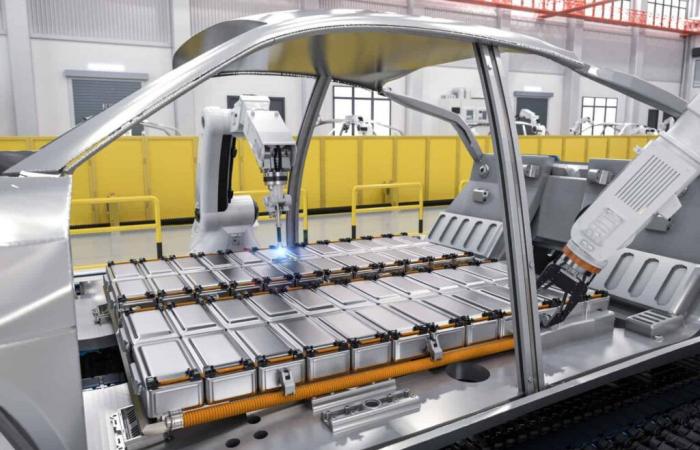Electric car news
The market for batteries for electric cars is experiencing a real revolution. In the space of a decade, we have seen a dizzying drop in prices, from almost $500 to just $60 per kilowatt hour ($/kWh). This dramatic decline has major implications for the auto industry and for you, future electric vehicle buyers.
The collapse of battery costs
When lithium-ion cells first appeared on the market in 1991, the cost of a kilowatt hour ranged between $3,000 and $8,000. Today, the landscape is radically different. Nickel-manganese-cobalt (NMC) cells, widely used in industry, trade between 80 and 100 euros per kWh. Even more impressive, lithium-iron-phosphate (LFP) cells now cost just 60 euros per kWh.
This drop in prices can be explained by several factors:
- A persistent oversupply since the second half of 2023
- Factory expansion and increased production
- The significant drop in the cost of raw materials
Take the example of cathode materials. According to calculations by expert Dirk-Uwe Sauer, their cost increased from $78/kWh in spring 2022 to $29/kWh today. Lithium, a key element of batteries, saw its price divided by seven. Nickel and cobalt also saw notable declines.


The impact of LFP technology
The growing adoption of LFP cells, particularly in China, plays a major role in this downward trend. Last year, 70% of Chinese electric cars were equipped with batteries using this chemistry. The main advantage? These batteries do not require expensive raw materials like cobalt or nickel.
This transition to LFP technology has significant implications for the global market. Chinese manufacturers, pioneers in this field, benefit from a significant competitive advantage. They manage to maintain profit margins despite price pressure, thanks to their expertise and scale of production.
The European challenge facing Chinese competition
Europe finds itself in a delicate position in the face of this new situation. European manufacturers, still new to mass battery production, face additional challenges. The “waste rate”, i.e. the proportion of defective batteries produced, is a crucial factor. Chinese producers, with their experience, display scrap rates significantly lower than those of their European counterparts.
This situation raises questions about the future of European battery initiatives. Ambitious projects, like those of Volkswagen in Salzgitter or ACC in France, face fierce competition and uncertain economic prospects.
Implications for the electric car market
The fall in battery prices has a direct impact on the overall cost of electric cars. As batteries become cheaper, manufacturers can offer electric vehicles at more competitive prices. This trend could accelerate the mass adoption of electric cars in the years to come.
For you, the consumer, this means more affordable electric vehicles and a wider range of choices. Manufacturers can now consider equipping their models with larger batteries, thus offering increased autonomy without drastic increase in costs.
The future of the battery industry
Despite this significant drop in prices, the battery industry continues to innovate. Research focuses on new battery chemistries, more efficient production processes and advanced recycling technologies. These developments could lead to a new wave of cost reductions and performance improvements.
The stakes for Europe are high. To remain competitive with China, the continent must accelerate its ramp-up in battery production, while investing massively in research and development. The key to success will be the ability to reduce costs while maintaining high quality and constantly innovating.
The price revolution for batteries for electric cars is underway. It is transforming not only the automobile industry, but also our relationship with electric mobility. As prices continue to fall and performance improves, we are moving toward a future where electric vehicles will not only be a viable option, but perhaps even the norm for most drivers.
Written by Philippe Moureau
Forty-year-old passionate about electric cars. I am interested in the energy transition and the fight against greenhouse gas emissions. I am a true electric car enthusiast and environmental advocate.
React to the article







